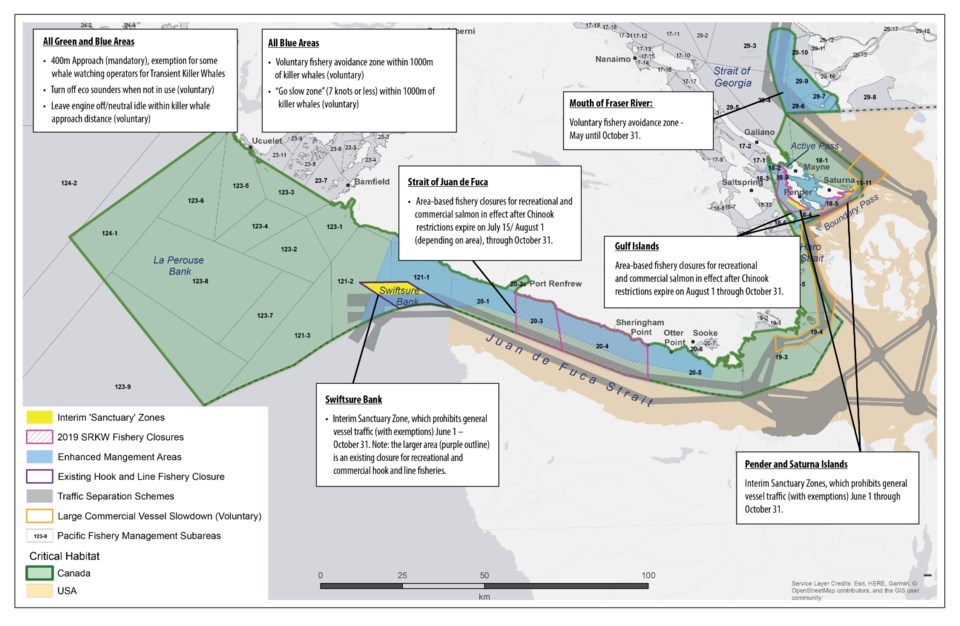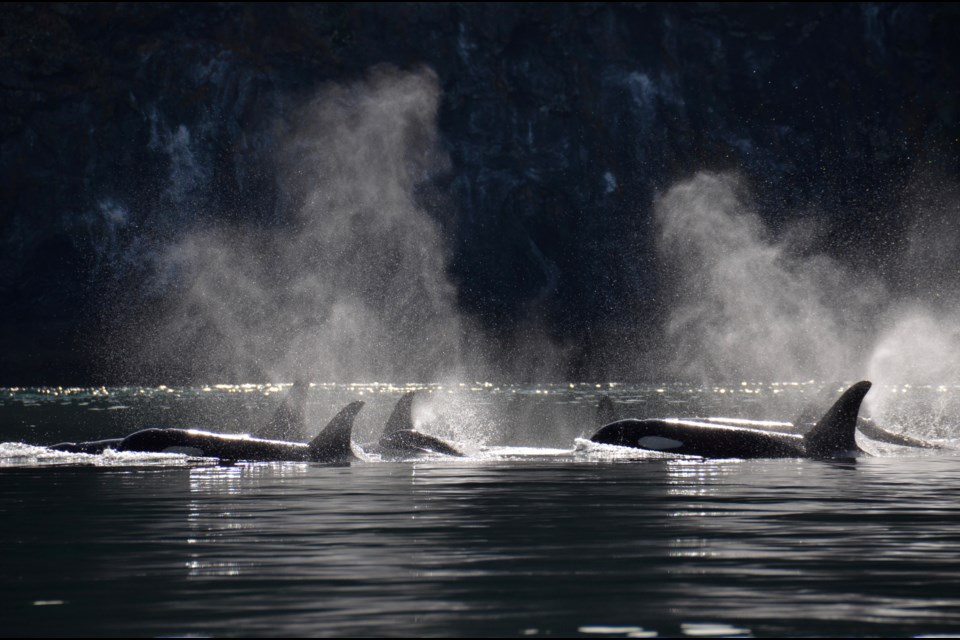New “bubble zones” around endangered southern resident killer whales, slow-downs of large vessel speeds and salmon fishery closures in areas of Juan de Fuca and Haro straits were among the measures announced Friday by Fisheries Minister Jonathan Wilkinson.
Wilkinson, MP for North Vancouver, said the measures are needed to ensure the survival of the remaining 75 southern resident killer whales. “These whales face imminent threats,” he said at an announcement in Vancouver Friday. “The population survival is very much at risk.”
Among the measure announced, the Department of Fisheries and Oceans will close key areas of Juan de Fuca Strait, identified as important killer whale foraging areas, to both recreational and commercial salmon fishing between July and the end of October. Two areas near to Saturna and Pender islands will also be closed to salmon fishing.
Closer to Metro Vancouver, no mandatory salmon fishing closures will be put in place near the mouth of the Fraser River, but the department is calling for the observation of voluntary no-fishing “bubble” zones within one kilometre of southern resident killer whales by both commercial and recreational fishers, if whales are spotted in the area.
The move follows earlier restrictions announced last month which limited chinook fishing to catch-and-release between April and the end of July throughout many areas of the south coast.
Those moves recently prompted an angry protest outside Wilkinson’s North Vancouver office by some anglers who said their businesses depend on recreational fishing.
To reduce the impacts of underwater vessel noise on the whales’ ability to hunt for chinook, DFO and Transport Canada are also banning all boats, including whale watching vessels, from going within 400 metres of killer whales in areas in areas identified as critical whale habitat.
Some whale watching boats will be allowed to go within 200 metres of whales, provided they are not southern resident killer whales, with special permission.
Boats will be also be banned in three interim whale sanctuaries, near Swiftsure Bank (off the west coast of Vancouver Island) and near south Saturna and west Pender islands.
The fisheries department will have three fisheries officers to enforce the regulations, based in Victoria. Transport Canada will also assist with aerial enforcement, according to DFO, as will the Coast Guard and Parks Canada staff.
Large ships including bulk and container shipping vessels and ferries travelling through areas of critical whale habitat will also be subject to voluntary slow-downs in vessel speed whenever whales are in the area.
DFO is also asking vessel operators to turn off echo sounders and put engines in idle if it’s safe to do so, if a whale is within 400 metres.

Southern resident killer whales are primarily found in the southern Strait of Georgia and Strait of Juan de Fuca, travelling in family units. Unlike other killer whales, which hunt and eat other animals like seals, the southern residents are primarily dependent on chinook salmon for food. Because they frequent waters close to large urban centres, they are also especially vulnerable to human threats to their habitat and food supply.
Among other moves to help the whales, the federal government has also announced it will increase its production of certain chinook salmon stocks at its Chilliwack hatchery. The measure is expected to increase the availability of that chinook tock by 30 per cent.
The government is also expecting to introduce new regulations in 2020 aimed at banning two toxic flame retardants that are known to persist in the marine food chain.



